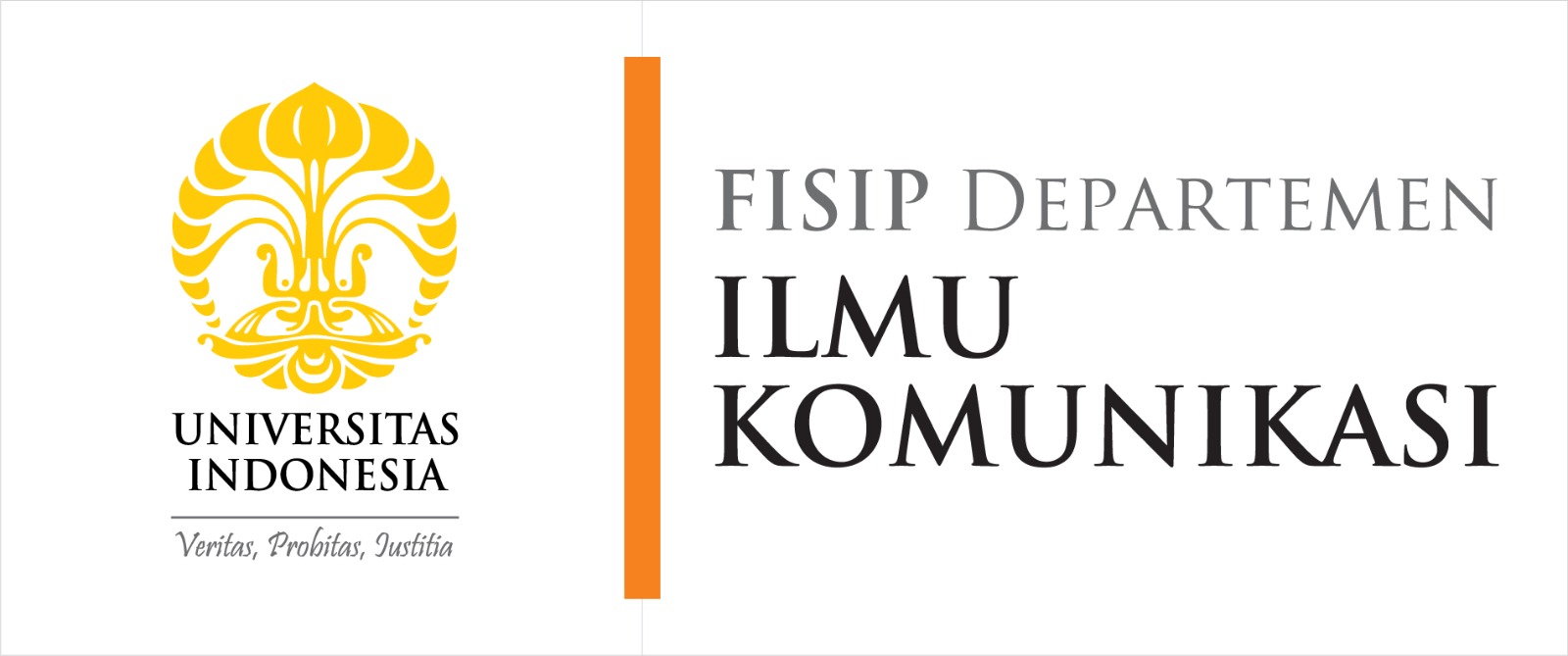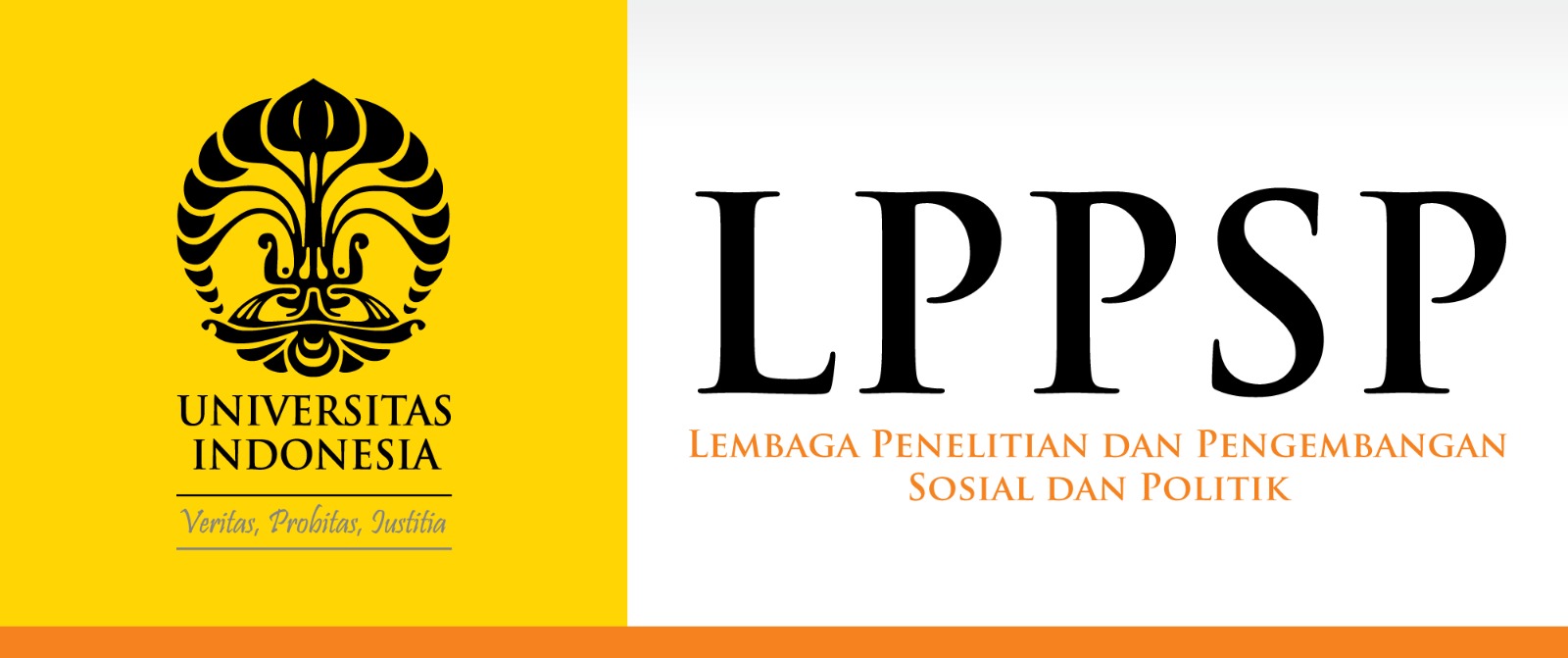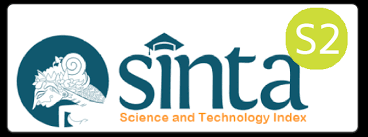JURNAL KOMUNIKASI INDONESIA
Abstract
This research is an audience reception study of hoax information on social media during the 2019 Presidential Election campaign in the post-truth era. This research uses a qualitative method with a reception study approach and various theories of active audiences such as the encoding-decoding model from Stuart Hall, which was also elaborated by David Morley and Ien Ang. The result shows that there are three typologies in receiving hoax. Those are the pragmatic-creative, ideological, and critical-skeptical type of audiences. The three typologies of the audience have different characters in the reception of hoax information in political communication on social media. Some audiences are permissive-negotious, some are critically oppositional, and some are hegemonized by hoax information in the 2019 Presidential Election political moment in such a way that they are part of the increasing turbulence of hoax.
Penelitian ini merupakan studi resepsi khalayak terhadap informasi hoaks di media sosial pada masa kampanye Pilihan Presiden 2019 dalam era pascakebenaran. Riset ini menggunakan metode kualitatif dengan pendekatan studi resepsi, dan menggunakan berbagai teori khalayak aktif seperti model encoding-decoding dari Stuart Hall yang dielaborasi juga oleh David Morley dan Ien Ang. Hasil penelitian menunjukkan bahwa terdapat tiga tipologi khalayak dalam menerima hoaks, yaitu khalayak tipe pragmatik-rekreatif, ideologis, dan kritis-skeptis. Ketiga tipologi khalayak itu memiliki karakter yang berbeda dalam meresepsi informasi hoaks dalam komunikasi politik di media sosial. Ada yang permisif-negosiatif, ada yang kritis oposisional, dan ada pula yang terhegemoni oleh informasi hoaks dalam momen politik Pilihan Presiden 2019, sehingga menjadi bagian dari peningkatan turbulensi hoaks.
References
Agger, B. (2006). Teori Sosial Kritis: Kritik, Penerapan, dan Implikasinya (Nurhadi, Trans.). Yogyakarta: Kreasi Wacana.
Ang, I. (1985). Watching Dallas. London: Methuen.
Baran, S. J., & Davis, D. K. (2000). Mass Communication Theory. Canada: Wadsworth Thomson Learning.
Bayat, A. (2007). Islam and Democracy: What is the Real Question?. Amsterdam: Amsterdam University Press.
Baarda, R., & Luppicini, R. (2014). “Shaping Digital Democracy in the United States: My.barackobama.com and Participatory Democracy. Evolving Issues Surrounding Technoethics and Society in the Digital Age, 213-231. doi:10.4018/978-1-4666-6122-6.ch014
Barker, C. (2000). Cultural Studies: Theory and Practice. London: Sage Publications.
Bimber, B. (2014). Digital Media in the Obama Campaigns of 2008 and 2012: Adaptation to the Personalized Political Communication Environment. Journal of Information Technology and Politics, 11(2), 130-150. DOI: 10.1080/19331681.2014.895691
Block, D. (2019). Post-truth and Political Discourse. Cham: Palgrave Macmillan.
Cnnindonesia.com. (2018). La Nyalla: Prabowo Tak Berani Pimpin Salat dan Baca Alquran. Retrieved From https://www.cnnindonesia.com/nasional/20181211154204-32-352811/la-nyalla-prabowo-tak-berani-pimpin-salat-dan-baca-alquran
Carlisle, J. E., & Patton, R. C. (2013). Is Social Media Changing How We Understand Political Engagement? An Analysis of Facebook and the 2008 Presidential Election. Political Research Quarterly, 66(4), 883-895. DOI: 10.1177/1065912913482758
Davis, E. (2017). Why We Have Reached Peak Bullshit and What We Can Do about It. London: Little Brown.
Ginting, A. J., Manongga, D., & Sembiring, I. (2018). The Spread Path of Hoax News in Social Media (Facebook) using Social Network Analysis. Paper. International Seminar on Research of Information Technology and Intelligent System. DOI: 10.1109/ISRITI.2018.8864444
Freelon, D. (2017). Campaigns in Control: Analyzing Controlled Interactivity and Message Discipline on Facebook. Journal of Information Technology and Politics, 14(2), 168-181. DOI: 10.1080/19331681.2017.1309309
Haryatmoko. (2019). Era Post-truth dan Prasangka Negatif. In A. Suwignyo (Ed.), Post-truth dan (Anti) Pluralisme. Jakarta: Kompas Media Nusantara.
Haryatmoko. (2019). Menghadapi Hoaks, Emosi Sosial, dan Populisme Agama. Basis. No. 5-6, tahun ke-68, 2019. In Yuli Purnama, Artikulasi Populisme sebagai Penanda Mengambang di Era Post-truth. [Unpublished paper]. Kolokium Prodi Kajian dan Budaya Sekolah Pascasarjana UGM.
Hall, S. (1981). “Encoding/Decoding”. In S. Hall, et al. (Ed.), Culture, Media, and Language. London: Hutchinson. In C. Barker. (2000). Cultural Studies: Theory and Practice. London: Sage Publications.
Hill, T. D., & Sen, K. (2000). The Internet in Indonesia’s New Democracy, Democratization, 7(1), 119-136. DOI: 10.1080/13510340008403648
Irawanto, B. (2019). Making It Personal: The Campaign Battle on Social Media in Indonesia’s Presidential Election. ISEAS Perspective 2019 No.28. Singapore: ISEAS Yusof Ishak Institute. Diakses melalui https://www.iseas.edu.sg/category/articles-commentaries/iseas-perspective/iseas-perspective-2019/
Juditha, C. (2018). Interaksi Komunikasi Hoax di Media Sosial serta Antisipasinya. Jurnal Pekommas, 3(1), 31-44.
Liebes, T., & Katz,T.(1991). The Export of Meaning. Oxford: Oxford University Press.
Llorente, J. A. (2017). The Post-truth Era: Reality vs Perception. Uno Magazine. No. 27 March 2017. Hlm 9. www.U-Magezine.com
McComiskey, B. (2017). Post-truth Rethoric and Composition. Colorado: Utah State University Press.
McIntyre, L. (2018). Post-truth. Cambridge: Massachusetts Institute of Technology
Morley, D. (1980). The Nationwide Audience: Structure and Decoding. London: British Film Institute.
Moyo, L. (2009). Digital Democracy: Enhancing the Public Sphere. In G. Creeber & R. Martin (Eds.), Digital Culture: Understanding New Media. Berkshire-England: Open University Press.
Muhsin, I. (2015). Ummah dan Dawlah dalam Pandangan Gerakan Islam Politik. [Unpublished dissertation]. Program Studi Sosiologi, Fisipol. UGM.
Nugroho, A. (2018). The Analysis of Hoax Spread in Social Media. IOSR Journal of Humanities and Social Science, 23(6), 50-60. DOI: 10.9790/0837-2306065060
PublicaNews. (2018). Trending Topik #PrabowoTdkBisaSholat, Ini Kultwit Gerindra. Retrieved from https://www.publica-news.com/berita/nasional/2018/08/15/22327/trending-topik-prabowotdkbisasholat-ini-kultwit-gerindra.html, diakses pada 16 November 2019.
Purnama, Y. F. (2019). Artikulasi Populisme sebagai Penanda Mengambang di Era Post-truth. [Unpublished paper]. Kolokium Prodi Kajian dan Budaya Sekolah Pascasarjana UGM.
Tempo.Co. (2019). 5 Fakta dan Kronologis Hoax 7 Kontainer Surat Suara Dicoblos. Tempo Co. Retrieved from https://nasional.tempo.co/read/1161417/5-fakta-dan-kronologis-hoax-7-kontainer-surat-suara-dicoblos?page_num=1
Tempo.Co. (2019). Hoax 7 Kontainer Surat Suara, Bagus Bawana Sebut Akun 4 Politikus. Retrieved From https://nasional.tempo.co/read/1163426/hoax-7-kontainer-surat-suara-bagus-bawana-sebut-akun-4-politikus/
Redana, B. (2017). Tahun Mengingat dan Melupakan. Artikel. Kompas. 24 September 2017.
Riyanto, Puji dkk. (2019). Pemetaan Hoaks Politik Selama Pemilu Presiden 2019. Laporan Penelitian. Kerjasama Ditjen Informasi dan Komunikasi Publik Kemkominfo RI dan PR2Media Yogyakarta.
Roy, O. (1994). The Failure of Political Islam. Massachusetts: Harvard University Press
Saco, D. (2002). Cybering Democracy: Public Space and the Internet. Minneapolis: University of Minnesota Press.
Schmitz, D., Piedras, E., Wottrich, L, Silva, L. A. P, Pieniz, M., Jacks, N., & John, V. (2015). Reception Studies: State of the Issue and Challenges ahead. Intercom – RBCC São Paulo, 38(1), 109-127. DOI: 10.1590/1809-5844201515
Staiger, J. (2005). Media Reception Studies. New York: New York University Press.
Trend, D (ed.). (2001). The Internet and the Public Sphere. In Reading Digital Culture. Oxford: Blackwell Publisher.
Wright, S. (2012). Politics as Usual? Revolution, Normalization and a New Agenda for Online Deliberation. New Media & Society, 14(2), 244–61. DOI: 10.1177/1461444811410679
Recommended Citation
Wahyono, Sugeng Bayu; Wirasti, Murti Kusuma; and Ratmono, Barito Mulyo
(2020)
"Audience Reception of Hoax Information on Social Media in the Post-Truth Era,"
JURNAL KOMUNIKASI INDONESIA: Vol. 9:
No.
2, Article 7.
DOI: 10.7454/jki.v9i2.12773
Available at:
https://scholarhub.ui.ac.id/jkmi/vol9/iss2/7
Included in
Gender, Race, Sexuality, and Ethnicity in Communication Commons, International and Intercultural Communication Commons, Social Influence and Political Communication Commons




